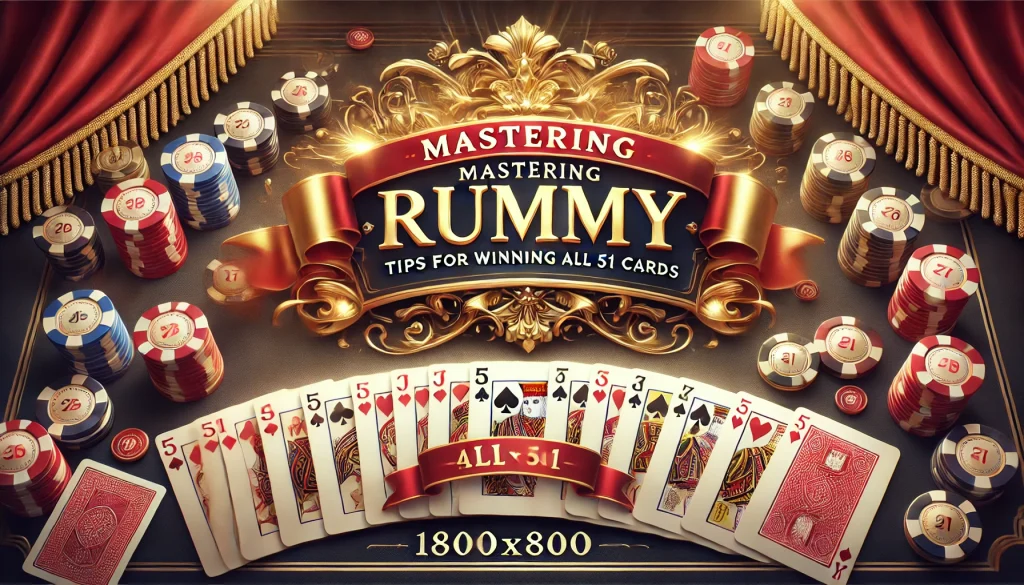Description

Learning Rummy: rummy culture A Complete Guide Rummy is a well-known card game that has captured the attention of players worldwide with its unique combination of strategy, skill, and a little bit of luck. Classic 777 Slots APK The game’s main objective is to form runs and sets from a card hand. A run is a series of three or more cards in the same suit, whereas a set is made up of three or four cards of the same rank but different suits.
The goal is to combine every card you 777 slots have into a legitimate combination before your rivals do. Two or more players can play the game, & there are several variations, such as Gin Rummy, Indian Rummy, and Kalooki, each with its own set of rules and subtleties. Jokers can be included as wild cards in certain variations of the 52-card standard deck used in rummy. While discarding unwanted cards, players can draw cards from the discard pile or the stockpile to improve their hands. The game necessitates both a solid grasp of the rules & an appreciation of the strategic components.
In order to increase their chances of winning, players must continuously assess their hands, predict the moves of their opponents, and make choices that will maximize their chances. Rummy is both challenging & entertaining because of the complex interaction between strategy and chance. Players must create a solid strategy that incorporates both offensive and defensive play if they want to succeed at rummy. Focusing on creating melds as fast as you can while monitoring the cards your opponents discard is one strategy that works well.
Players can disrupt their opponents’ strategies in addition to improving their own hands thanks to this dual focus. For example, it might be prudent to refrain from discarding cards from a specific suit if you observe that your opponent is gathering cards from that suit in order to stop them from finishing their melds. Managing cards is another crucial component of rummy strategy. In order to maintain hand flexibility, players should hold onto cards that have the potential to form multiple melds.
For instance, it can be beneficial to hold onto a 7 of hearts and an 8 of hearts since they can be used in a run with either a 6 or a 9. Players should also be aware of the value of their cards because they add to the total score when an opponent goes out, making high-value cards dangerous if they are not melded at the end of the game. To succeed in Rummy over the long run, one must strike a balance between the need to minimize point loss and the requirement to form melds. Keeping a close eye on what your opponents are doing can give you important information about their plans and tactics.
You can learn a lot about the melds they are attempting to form by paying close attention to the cards they draw & discard. If an opponent routinely takes cards from the discard pile instead of the stockpile, for example, it can mean that they are almost done with a meld using those particular cards. You can use this information to help you decide which cards to keep and which to discard. Also, you can tell how confident your opponents are with their hands by observing the timing of their moves.
A player may be trying to deceive others about the strength of their hand or be confident in their current melds if they discard high-value cards early in the game. On the other hand, hesitation before discarding might be a sign of hesitancy or a wish to preserve options. You can modify your approach & possibly outmaneuver your rivals by deciphering these subtle clues.
In rummy, knowing when to drop cards is an essential skill that can greatly affect your chances of winning. The possibility of forming melds in subsequent turns must be evaluated by players in addition to the value of the cards they currently hold. Keeping low-value cards for too long in the hopes of finishing a meld is a common error that can result in lost chances for improvement.
Rather, players should constantly assess their hands and think about discarding cards that are unlikely to advance their overall plan. Also, timing is crucial when dropping cards. Dropping a few high-value cards that aren’t in any melds could be a smart move if you find yourself holding them. In the event that an opponent goes out before you can meld these cards, holding onto them increases your risk. On the other hand, it might be worthwhile to hold onto some cards for a few more turns to see if you can complete those combinations if you have a strong hand with several possible melds.
Choosing which cards to drop requires finding the ideal ratio of risk to reward. When used properly, jokers and wild cards are strong Rummy tools that can greatly improve your gameplay. Due to their ability to form melds with any other card, these cards are extremely versatile. Nonetheless, players need to use strategy when adding these wild cards to their hands.
Jokers, for example, can speed up a run by completing a sequence, but it might be better to save them for a crucial situation where they can help you go out or stop an opponent’s progress. It’s crucial to think about how your opponents might use jokers against you as well. An opponent might be almost done with a strong meld if you see that they have taken a joker from the discard pile. In these situations, you should exercise caution when discarding cards that might enable them to finish their hand.
You can also make better decisions about your own strategy by monitoring the number of jokers that have been played and learning how many are still in play. Sorting Out Your Cards. Sorting your cards early in the game into possible melds is a good way to manage your hand effectively.
You can rapidly determine which combinations are the most promising and concentrate on completing those melds by organizing your cards according to suits or ranks. Being proactive. Being proactive as opposed to reactive is another crucial component of hand management.
Instead of waiting for particular cards to finish your melds, think about other possible combinations that you could use with the cards you currently own. Making Chances. Instead of waiting for high-value cards that might never appear, consider how you might make runs or sets with the low-value cards you currently have from various suits. As your opponents attempt to predict your next move, this proactive approach not only keeps your options open but also puts pressure on them. Making intelligent discards is an art form that can significantly impact a game’s outcome, despite the fact that discarding might seem simple.
Take into account both the card’s worth & potential utility to your opponents when choosing which one to discard. When at all possible, avoid discarding valuable cards or those that might complete an opponent’s meld. Rather, concentrate on throwing out cards that aren’t likely to add anything to anyone’s hand. Take into account the context and timing of your discards as well.
It might be prudent to refrain from throwing out specific suits entirely if you observe that an opponent has been selecting them from the discard pile. Conversely, it might be time to discard a card if you have several copies of it that are unlikely to combine to create any useful melds. The secret is to stay alert and flexible; a seemingly innocuous discard could become a crucial error if it unintentionally supports an opponent’s plan. When players compete for victory, rummy can be a fierce game with moments of pressure and high stakes. Making wise choices and carrying out your plan successfully during these crucial times require maintaining your composure.
Take a moment to calm down and evaluate the situation instead of responding hastily when faced with difficult decisions or unexpected moves from opponents. By using mindfulness practices, gamers can lessen their anxiety and maintain focus while playing. For instance, take a deep breath and picture your possible outcomes based on various scenarios before deciding which card to draw or discard.
In addition to helping you declutter your thoughts, this mental practice gives you the ability to face every challenge with purpose and clarity. Keep in mind that rummy is as much about mental toughness as it is about skill; maintaining composure under duress can frequently mean the difference between winning and losing. In summary, mastering Rummy necessitates a blend of knowing the basics of the game, formulating strategic plans, analyzing the actions of rivals, skillfully managing your hand, making astute discards, and remaining composed under duress. In this captivating card game, players can greatly increase their chances of winning by developing these abilities and using them carefully while playing.lottery sambad old


